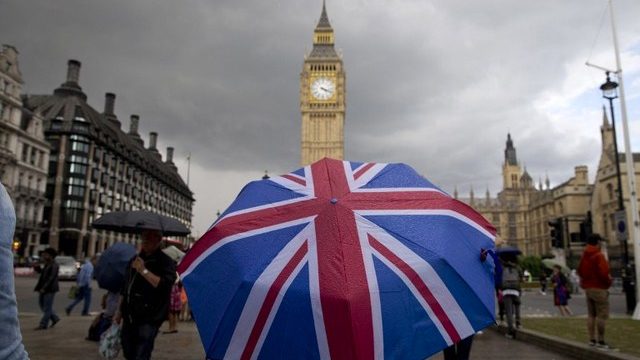SUMMARY
This is AI generated summarization, which may have errors. For context, always refer to the full article.

LONDON, United Kingdom – Britain’s government on Wednesday, February 19 faced a backlash over its new post-Brexit immigration plans, which are designed to cut “cheap labor from Europe” in favor of high-skilled English speakers and boosting the homegrown workforce.
Critics of the proposed points-based system, due to start on January 1, 2021, said the new measures could cause staff shortages in sectors heavily reliant on foreign workers.
Health and social care, construction, hospitality, and food and drink firms could be worst affected, warned the Confederation of British Industry, which represents employers.
Industry and unions also voiced fears about the lack of provision for low-paid workers, including in agriculture, where seasonal workers would not meet new thresholds.
“Firms know that hiring from overseas and investing in the skills of their workforce and new technologies is not an ‘either or’ choice – both are needed to drive the economy forward,” said CBI director-general Carolyn Fairbairn.
But interior minister Priti Patel dismissed suggestions of a negative impact on the UK economy, urging businesses to plug any shortfalls with local hires.
“It’s about time businesses started to invest in people in this country,” she told Sky News television.
“We have over 8 million people – that is 20% of the workforce – aged between 16 and 64 that are economically inactive right now.”
‘Taking back control’
The plans, which Patel called “firm and fair,” are the biggest change to immigration policy in 50 years and will go before parliament, where Prime Minister Boris Johnson has a comfortable majority.
They were billed as “taking back control” of Britain’s borders and reducing immigration – both key demands of anti-EU campaigners in the divisive Brexit debate.
Effectively, the new measures will make it easier for more qualified, English-speaking workers to get visas, and harder for low-skilled migrants to do so.
But the Conservative government was accused of failing to assess the economic impact, even after a report that said it would have “zero effect” on boosting the homegrown workforce.
The main opposition Labor party said some sectors’ reliance on foreign workers would force the government to make numerous exceptions, rendering the new rules “meaningless.”
Its home affairs spokesman Diane Abbott called it a “salary threshold system,” which would affect the already hard-pressed state-run National Health Service and social care sector.
Her opposite number at the smaller Liberal Democrats, Christine Jardine, said the policy was “based on xenophobia, not the social and economic needs of our country.”
Britain left the EU after 47 years of membership on January 31. EU rules are still in place until the end of the year as London and Brussels thrash out a new trade deal.
But Jardine and others warned that 10 months was not enough time for businesses to prepare for the end to free movement of EU nationals to other member states.
Points system
The plans do not affect more than 3.2 million EU citizens who have applied to stay in Britain under the official settlement scheme.
The proposals require each foreign worker to earn 70 points to be eligible and a set number of points for each qualification or skill.
A maximum 20 points are awarded for prospective migrants who will earn at least £25,600 ($33,325 or 30,820 euros) and no points for those who will make the required minimum of £20,480.
Twenty points also go to people with an “appropriate skill level” and another 20 for those who speak English “at required level.”
Britain’s current salary threshold for skilled migrants is £30,000.
People who have jobs “in a shortage qualification” will also earn 20 points, and either 10 or 20 points for doctorate degrees in various fields.
“Applicants will be able to ‘trade’ characteristics such as their specific job offer and qualifications against a lower salary,” the government proposal says. – Rappler.com
Add a comment
How does this make you feel?
There are no comments yet. Add your comment to start the conversation.